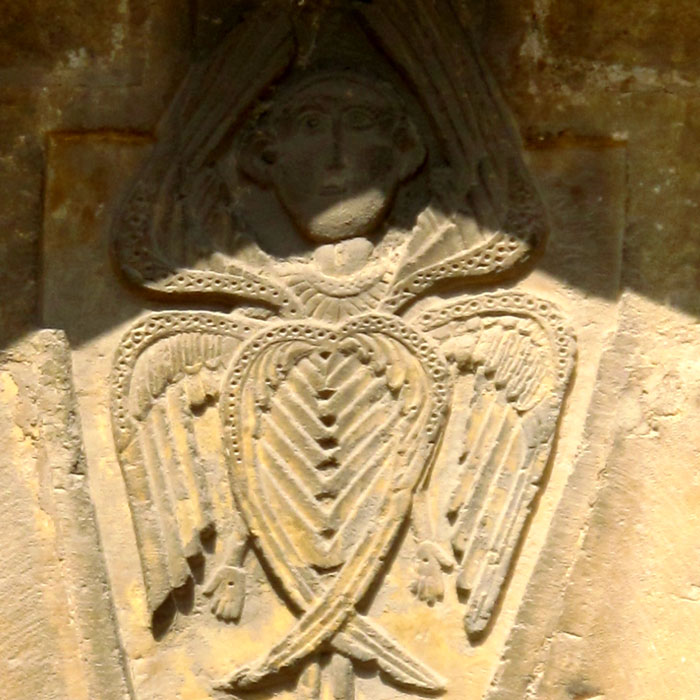Music Traditions in Dialogue:
Dhrupad, Hildegard von Bingen,
and Byzantine Kalophonia
Musicians
Ashish Sankrityayan, Dhrupad chant
Johannes Schmelzer-Ziringer, Tanpura & Ison
Martin Profittlich, Ison
Oliver Gerlach, Western & Byzantine Chant
>> concerts
Programme: Three Dialogues in Music
The concert is based on a rather experimental idea: Two singers who studied three traditions, have chosen one model for each tradition. While they are listening to each other, their perception is following the given modal framework of the represented tradition. Through this exchange they will meet in an intimate conversation, and inspire each other. Something new happens which probably only exist for this very moment.
Three songs come into this dialogue:
- dialogue 1: The cherubim chant (cheruvimskij pēsn) in the chromatic ēchos devteros (tvorij glas) of the Bulgarian Orthodox tradition joins a dialogue with raga ahir bhairav
- dialogue 2: An improvisation of alap (slow introduction) in raga yaman joins a dialogue with a teretismos in ēchos varys (the “heavy mode”), taken from a heirmologion kalophonikon and intoned according to a very traditional school of 18th century Istanbul
- dialogue 3: Hildegard von Bingen's antiphon «O virtus sapientiae» in the church mode autentus deuterus joins a dialogue with raga bhairav
Cherouvikon
First Dialogue: ēchos devteros (Tvorij Glas, ἦχος δεύτερος) — Raga Ahir Bhairav
Οἱ τὰ χερουβὶμ μυστικῶς εἰκονίζοντες |
Let us who mystically represent the Cherubim |
Ταῖς ἀγγελικαῖς ἀοράτως |
invisibly escorted |
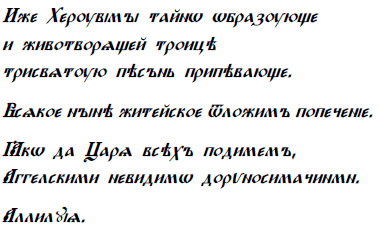 |
Iže Heruvimyj tajnō ōbrazujušte |
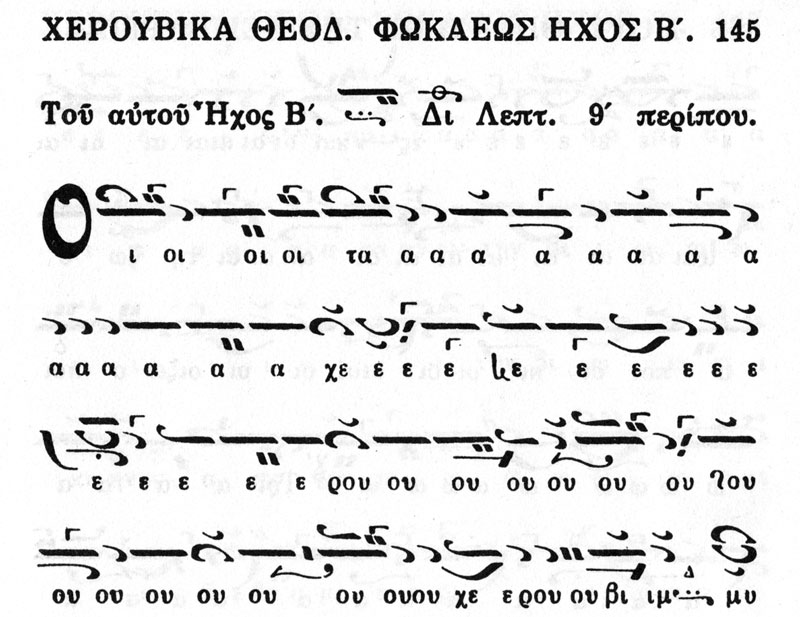
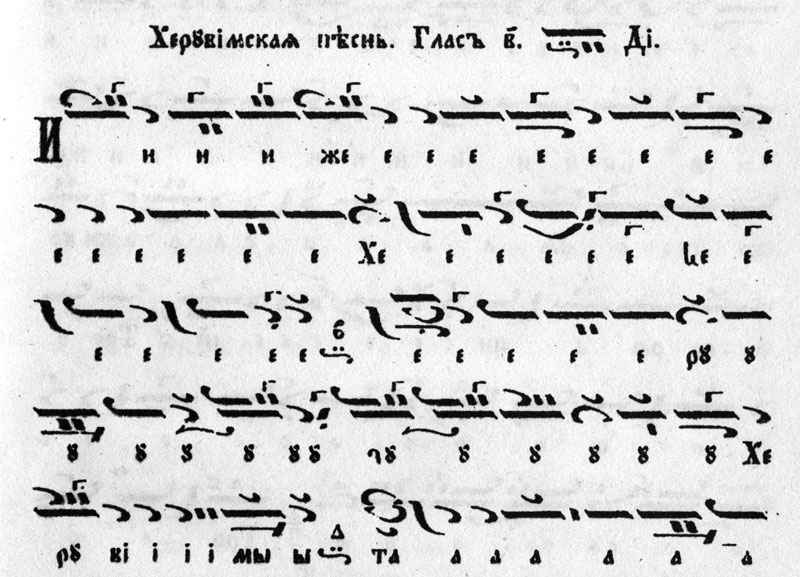
2 & 3: Cherouvikon in the Greek and in the Bulgarian Songbook
>> Das byzantinische Cherouvikon (Cherubimhymnus)
Model of Raga Yaman
Second Dialogue: Raga Yaman (Alap) — Teretismos in the „heavy ēchos“ (ἦχος βαρύς)
Kesara ghola ke ranga bano hai
aba tuma lala kahan jaiyo bhaag
abira gulala ki dhooma machi hai
hori khelata braja raja
>> Über die Bedeutung des Singens über abstrakte Silben
Hildegard von Bingen — Antiphon <O virtus sapientiae>
Third Dialogue: Autentus deuterus — Raga Bhairav
O virtus sapientie |
O virtue "sapientia" (of wisdom)! |
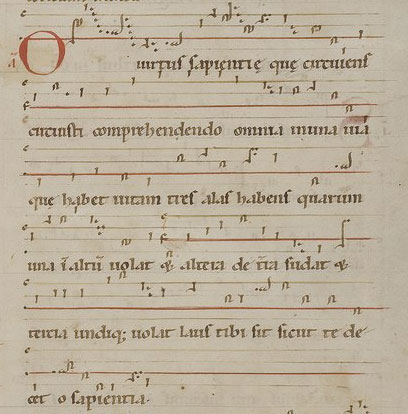
1: Rupertsberger Riesencodex (um 1175/1190) - Wiesbaden, Hessische Landesbibliothek, Hs. 2, fol. 466
>> Hildegard von Bingen und die christliche Kirche im 12. Jahrhundert

